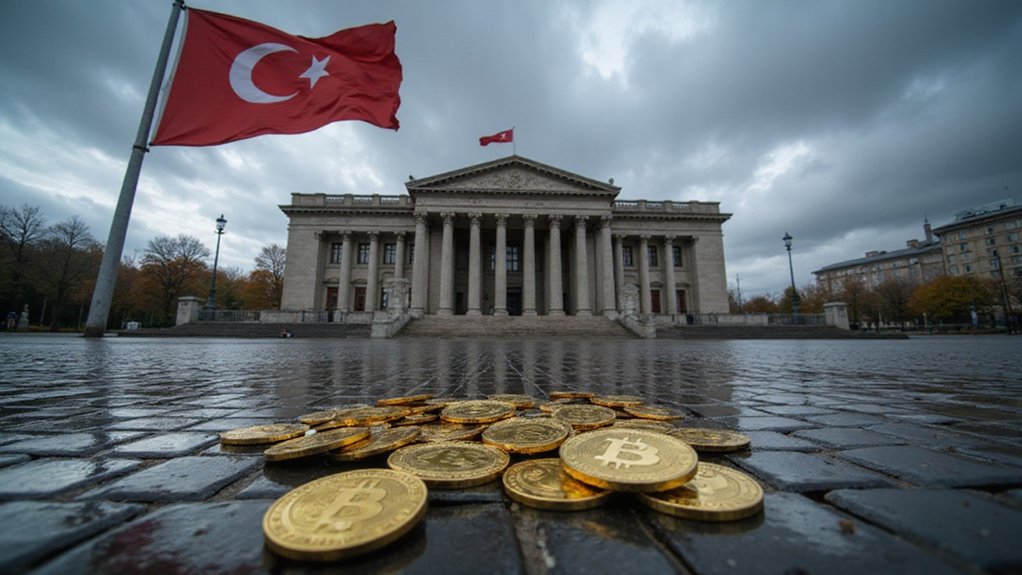While most nations grapple with finding the regulatory sweet spot between crypto innovation and financial oversight, Turkey has decidedly chosen the path of extensive control, implementing what may be the most stringent cryptocurrency regulatory framework outside of an outright ban.
The new regulations, taking effect February 2025, mandate thorough licensing through the Capital Markets Board while subjecting crypto platforms to oversight from the Financial Crimes Investigation Board—because apparently one regulatory body wasn’t sufficient for digital assets that exist primarily as code.
TÜBİTAK, Turkey’s technological research institution, will audit firms’ systems, creating a triumvirate of bureaucratic supervision that would make even traditional banks envious.
Identity verification becomes mandatory for transactions exceeding 15,000 Turkish Lira (roughly £425), effectively eliminating anonymous transfers above this threshold. Users must link accounts to verified identities, while unregistered wallets face “rigorous inspections”—a delightfully vague term that likely translates to intensive governmental scrutiny of previously private financial activities.
The transactional requirements border on the absurd: every crypto transfer demands a minimum 20-character explanation of its purpose, transforming simple peer-to-peer transactions into mini-essays. Platforms must collect detailed source and purpose information, while stablecoin transfers face specific limitations under rules designed to mirror the EU’s MiCA framework. Additionally, withdrawals after purchases face 48-hour delays without proper compliance verification, further constraining the speed that crypto users traditionally expect.
Withdrawal delays may be implemented to facilitate transaction monitoring, because nothing says “decentralized finance” like mandatory government approval periods. This centralized approach starkly contrasts with decentralized exchanges that use smart contracts to facilitate direct transactions between users without intermediaries.
These measures, ostensibly targeting illegal betting, fraud, and money laundering, align with anti-money laundering and counter-terrorism financing standards. However, the extensive nature of Turkey’s approach suggests broader motivations—particularly concerning given the lira’s persistent volatility and citizens’ historical tendency toward crypto adoption during currency crises.
The regulatory burden threatens to crush smaller startups while potentially driving crypto activity offshore or underground, defeating the transparency objectives entirely. Industry stakeholders worry about balancing security with growth, though “balance” seems an optimistic term for regulations this extensive. Despite the restrictive framework, holding and trading cryptocurrencies remain legal activities for Turkish citizens.
Consumer protection measures might theoretically build investor confidence, but they could simultaneously limit market participation through sheer bureaucratic complexity.
Turkey’s bold regulatory gambit represents either prescient financial stewardship or regulatory overreach that misunderstands crypto’s fundamental appeal—time will determine which interpretation proves accurate.









